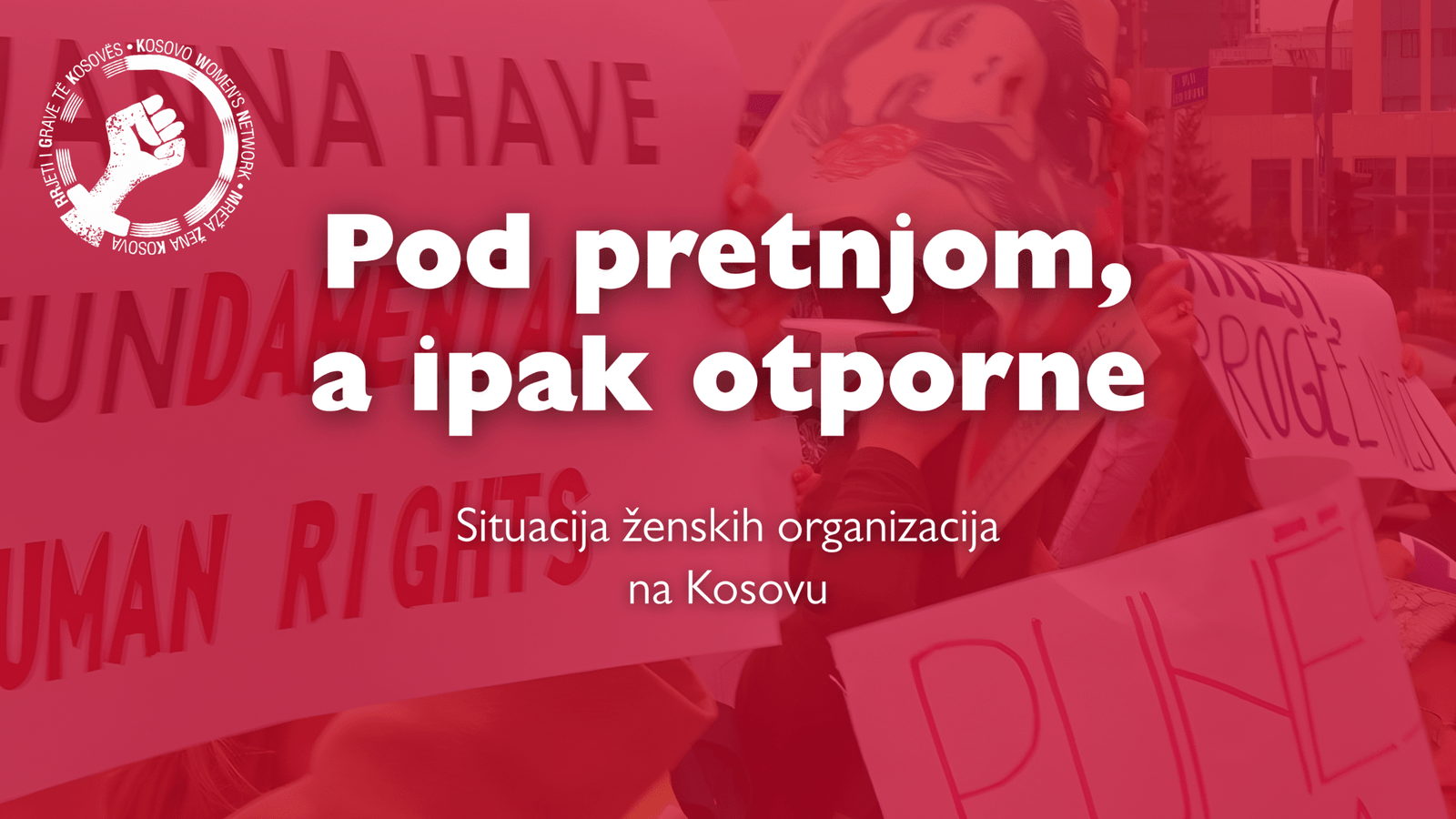Representatives from the Former Members Association of the European Parliament (FMA) discussed the position of women in Kosovo with a Kosova Women’s Network (KWN) representative on 14 Oct. at the EU office in Kosovo.
KWN’s representative provided a summary of the main challenges that women face in Kosovo and how KWN is working to address those challenges: women’s unequal participation in politics and decision-making at all levels; violations of women’s right to quality healthcare; gender-based violence; and women’s unequal participation in the labour market and gender-discrimination in hiring.
Former parliamentarians then asked a series of questions to which KWN responded, some of which are summarized in the table below:
|
Question
|
KWN Response
|
|
Is the Kanun still applied in Kosovo?
|
As a law or public policy, no. Laws replaced these cultural “rules” long ago. However, the remnants of the Kanun (not its direct implementation) can be seen in a few remaining social practices, such property ownership that often, albeit not always, passes along patrilineal lines. This is not true of the entire population, but only a few people and moreso in rural areas.
|
|
Does Kosovo have a quota for women’s participation in politics?
|
Yes, political party lists used in elections should include at least one woman and one man in every three positions. E.g. at least one-third of any political party’s list must be comprised of women and men, respectively. Thus, women comprise approximately 30% of the parliament and municipal assemblies. However, this notably fails to achieve the 40% participation at all levels foreseen by the Law on Gender Equality.
|
|
Do women’s shelters have sufficient funding from the state?
|
While shelters receive some funding from the state, it is not sufficient to cover all of their costs. Also some key costs will not be financed by the state, such as staff positions. For more information, see KWN’s research: At What Cost?KWN continues to advocate for shelters’ costs to be fully covered by the state.
|
|
Do women and men have an equal right to inheritance and property?
|
Yes. According to the Law on Inheritance, they should inherit equal shares.
|
|
Can women buy property without the signature of their husbands?
|
Yes.
|
|
With regard to gender discrimination in hiring, is it only against women of child-bearing years; would older women with extensive experience and expertise get positions?
|
It is difficult to know for sure because there has not been any study on this, and this is an area in need of research. We have heard some reports of ageism in hiring, such as employers wanting younger people who are thought to be more knowledgeable in computers and technology, but no known research has been conducted in this regard. Among women in their post-childbearing years, a limited percentage have extensive experience. Yugoslav statistics suggest that women’s labour force participation reached 23% at the highest in 1988. Regional Employment Centres state that lack of qualification is among the reasons why they struggle to find employment particularly for older women.
|
|
Does KWN work with different ethnic groups and target them through its programs?
|
Yes, KWN as a network has member organizations led by Serbian, Roma, Ashkali, Egyptian, Albanian, and Bosnian women. These and other members target diverse ethnic groups through their work. KWN also collaborates with women’s groups in South East Europe of diverse ethnicities.
|
|
Do boys’ and girls’ level of education and enrolment differ?
|
The gap has decreased substantially. Gross Primary Enrolment 96% female, 95% male. Gross Upper Secondary Enrolment 88% female, 96% male.. Now more women tend to enrol in university than men. However, clear differences exist in the types of programs girls and boys tend to enrol in. Gross Tertiary Enrolment (women dominate education, philosophy, philology; men dominate construction, architecture, mechanical engineering; gender balance in law, economics, and medicine) 45% female and 55% male.
|
|
Does the society respect women and do women respect and support each other?
|
It depends. It is difficult to homogenize people. Some women in society are very much respected by some people. Other people do not respect women. Within the family there are still particular roles within some (not all) families whereby mother’s and mothers-in-laws have much greater power within the family than young women. While some women support each other, others try to undermine each other.
|
Established in 2001, the FMA gathers approximately 700 former members of the European Parliament to share their experiences and expertise via seminars, conferences, and democracy-building activities. Every year they organize a study visit that involves both sightseeing and political dialogue. During their visit to Kosovo from 11 to 19 Oct. they have met with political leaders and representatives of various civil society groups, among other actors.






